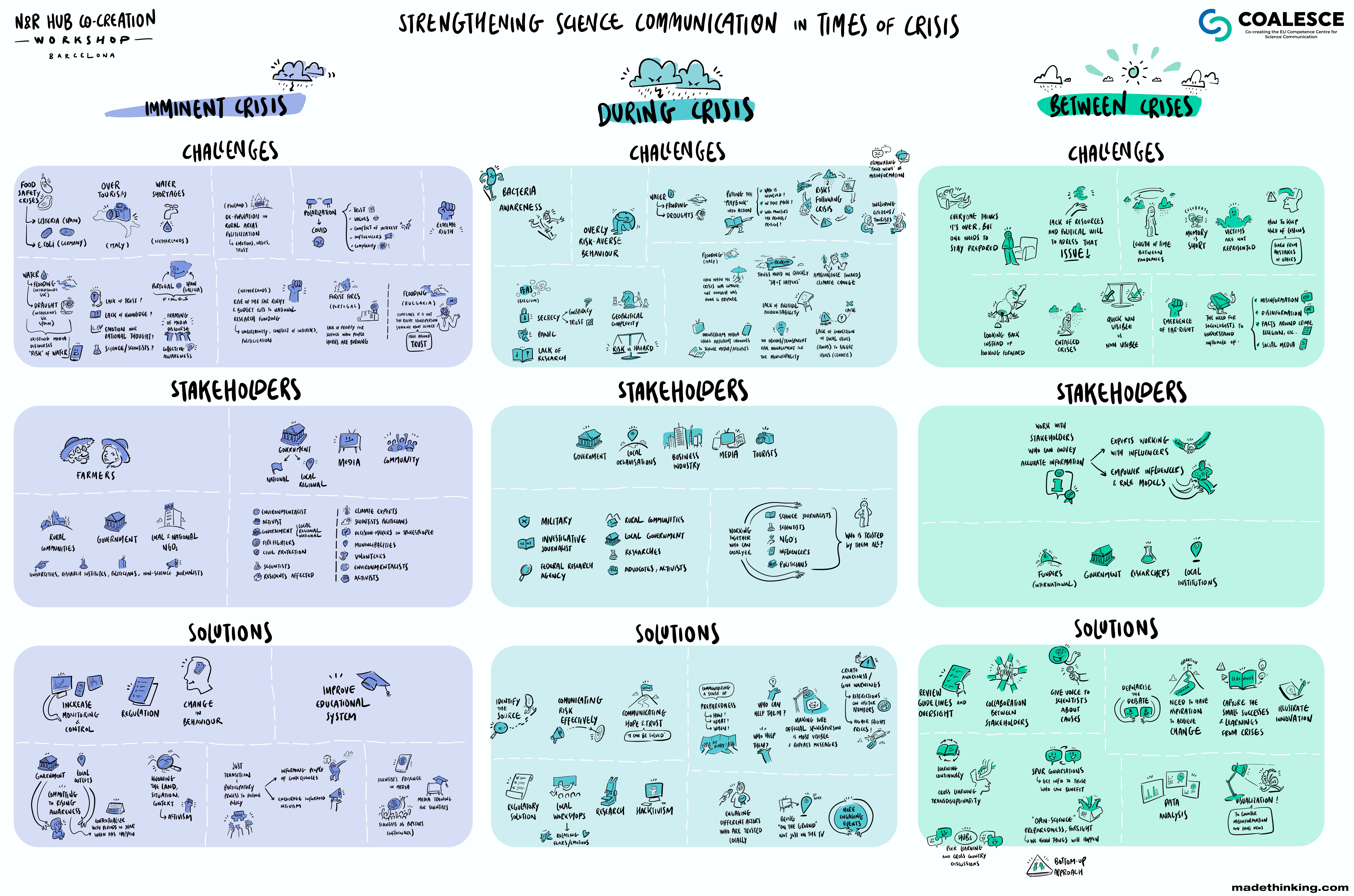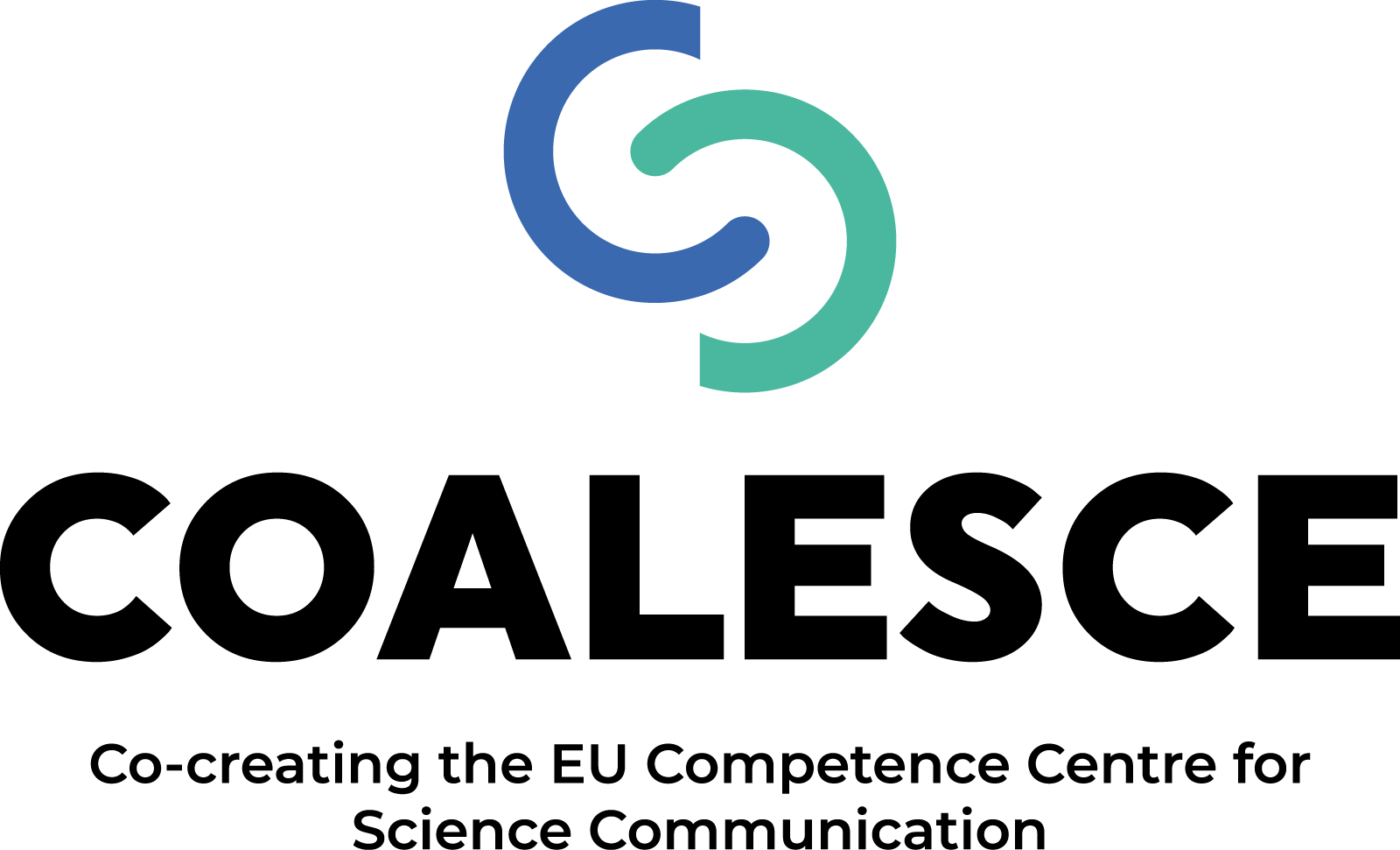Hubs generate ideas to strengthen science communication in times of crisis

– Andy Ridgway
Finding ways to communicate science more effectively when a crisis is causing havoc is one of the biggest challenges facing science communication – something the COVID-19 pandemic brought into sharp focus. Polarisation, disinformation and the blurring of boundaries around who has relevant expertise all combine to make dealing with a crisis more challenging.
Transforming science communication so it enables better decision making during crises is not straightforward, given the complexity of the problem and number of stakeholders involved. But the team behind the COALESCE project, funded by the European Commission to build a European Competence Centre for Science Communication, enlisted the help of the Competence Centre’s National and Regional Hubs to start the conversation about strengthening science communication at times of crisis.
The Competence Centre’s Hubs are highly respected universities, science centres and foundations across Europe involved in science communication that will share resources being created for the Competence Centre to support science communicators in their work. The Hubs will also adapt the resources so they meet the needs of those communicating science in their own countries.
At a workshop in Barcelona, the Hubs used the Crisis Navigator, one of the early resources developed for the Competence Centre, to think through the challenges to effective science communication during a crisis, the stakeholders involved and solutions to those challenges. The Crisis Navigator encourages users to think through the different phases of a crisis – pre-crisis, during the crisis and between crises – and explore the communication challenges and solutions at each phase. During the workshop, the thoughts of Hub representatives were captured in artwork created by Barcelona-based artist, Edgar Sanjuán, founder and CEO of Emogg.

The final graphic produced by Edgar Sanjuán
Different Hubs considered the challenges to science communication at times of crisis through the lens of a crisis relevant to them, whether it was over tourism in Italy, wildfires in Portugal and Spain or flooding in Bulgaria, The Netherlands and UK. While the nature of the crises was diverse, there were common factors underlying the challenges – such as polarisation and disinformation. But some challenges were crisis specific – such as the lack of connection made between local floods and climate change.
When it came to solutions to the challenges, these ranged from more media training for scientists before a crisis, communicating hope during a crisis with “this can be solved” messages as well as trying to depolarise debates between crises – not a straightforward thing to do. These insights will inform the future work of the Competence Centre – and Hub members considered the role the Centre might play in finding solutions, such as facilitating greater exchange between scientists and policymakers, or engaging with local and national governments to discuss more effective science communication.
The discussion activity that the Hubs engaged in will form part of training activities provided by the Science Communication Academy within the Competence Centre.


